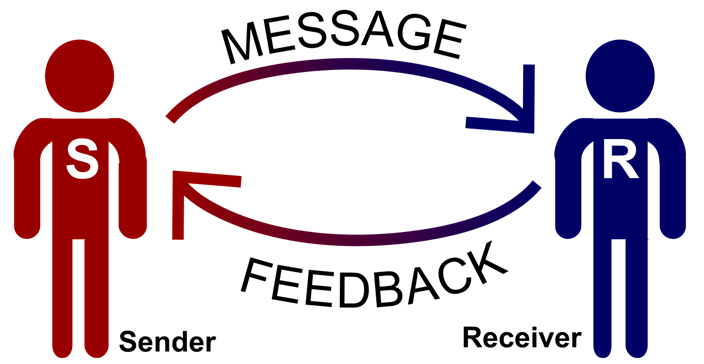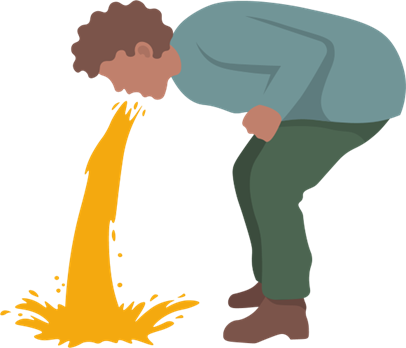A nurse is caring for a 4-year-old child who has croup and wet the bed overnight. When the parents visit the next day, the nurse explains the situation and one of the parents says, "She never wets the bed at home. I am so embarrassed." Which of the following responses should the nurse make?
This is expected for children who are hospitalized to regress. The toileting skills will return when your child is feeling better.
Why does it bother you that your child has wet the bed?
Your child did not seem upset, so I wouldn't worry about it if I were you.
I know this can really be embarrassing. I have kids myself, so I understand, and it doesn't bother me.
The Correct Answer is A
Choice A reason: This is a therapeutic response that acknowledges the parent's feelings and provides reassurance that the behavior is normal and temporary. The other responses are either dismissive, judgmental, or self-disclosing, which are not helpful for the parent.
Choice B reason: This is a judgmental response that implies that the parent is overreacting or has unrealistic expectations for their child.
Choice C reason: This is a dismissive response that minimizes the parent's concern and does not offer any support
or information.
Choice D reason: This is a self-disclosing response that shifts the focus from the parent to the nurse and does not
address the issue at hand.

Nursing Test Bank
Naxlex Comprehensive Predictor Exams
Related Questions
Correct Answer is B
Explanation
Choice A reason: This choice is incorrect because limiting intake of high-protein foods is not a method of preventing iron deficiency anemia. High-protein foods are foods that contain a large amount of protein, such as meat, poultry, fish, eggs, dairy products, beans, nuts, or seeds. Protein is a nutrient that helps to build and repair body tissues and support immune function. It may also provide iron, which is a mineral that helps to produce hemoglobin, the protein that carries oxygen in red blood cells. Therefore, limiting intake of high-protein foods may reduce iron intake and increase the risk of iron deficiency anemia.
Choice B reason: This choice is correct because mom should continue prenatal vitamins if breastfeeding or formula with an iron supplement is a method of preventing iron deficiency anemia. Prenatal vitamins are supplements that contain various vitamins and minerals that are essential for pregnant or lactating women and their babies. They may include iron, which helps to prevent maternal and infant anemia. Formula with an iron supplement is a type of infant formula that contains added iron to meet the nutritional needs of infants who are not breastfed or partially breastfed. Therefore, mom should continue prenatal vitamins if breastfeeding or formula with an iron supplement can help to provide adequate iron intake and prevent iron deficiency anemia.
Choice C reason: This choice is incorrect because administering fat-soluble vitamins daily is not a method of preventing iron deficiency anemia. Fat-soluble vitamins are vitamins that dissolve in fat and can be stored in the body, such as vitamins A, D, E, and K. They have various functions such as maintaining vision, bone health, skin health, and blood clotting. They do not have a direct role in preventing iron deficiency anemia.
Choice D reason: This choice is incorrect because including fluoridated water in the toddler's diet is not a method of preventing iron deficiency anemia. Fluoridated water is water that contains fluoride, which is a substance that helps to prevent tooth decay and cavities. It does not have a direct role in preventing iron deficiency anemia.
Correct Answer is C
Explanation
Choice A: Distended neck veins are not a clinical manifestation of pyloric stenosis, which is a condition that causes the narrowing of the pylorus, which is the opening between the stomach and the small intestine. Distended neck veins are a sign of increased venous pressure, which can occur in conditions that affect the right side of the heart or cause fluid overload.
Choice B: Rigid abdomen is not a clinical manifestation of pyloric stenosis, but rather a sign of peritonitis, which is inflammation of the peritoneum, which is the membrane that lines the abdominal cavity. Peritonitis can be caused by infection, perforation, or trauma to any abdominal organ. A rigid abdomen indicates severe pain and inflammation in the abdominal cavity.
Choice C: Projectile vomiting is a clinical manifestation of pyloric stenosis, as it indicates forceful expulsion of stomach contents due to obstruction at the pylorus. Projectile vomiting can occur shortly after feeding and may contain undigested milk or formula. Projectile vomiting can cause dehydration, electrolyte imbalance, or weight loss.
Choice D: Red currant jelly stools are not a clinical manifestation of pyloric stenosis, but rather a sign of intussusception, which is a condition that causes telescoping of one segment of bowel into another. Intussusception can cause obstruction and ischemia of the bowel and lead to bleeding and necrosis. Red currant jelly stools indicate blood and mucus in the stool.

Whether you are a student looking to ace your exams or a practicing nurse seeking to enhance your expertise , our nursing education contents will empower you with the confidence and competence to make a difference in the lives of patients and become a respected leader in the healthcare field.
Visit Naxlex, invest in your future and unlock endless possibilities with our unparalleled nursing education contents today
Report Wrong Answer on the Current Question
Do you disagree with the answer? If yes, what is your expected answer? Explain.
Kindly be descriptive with the issue you are facing.
